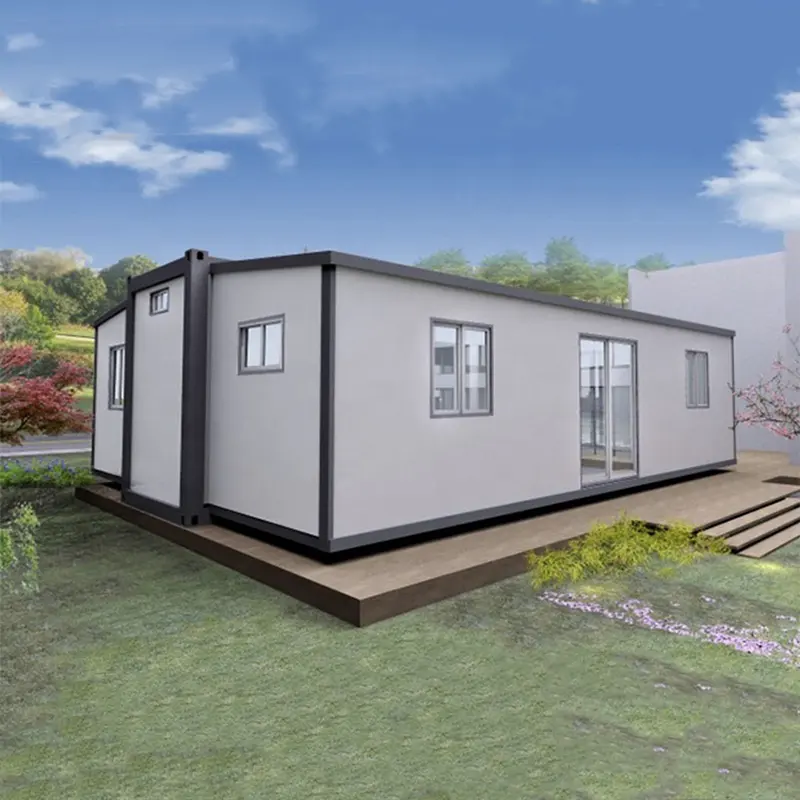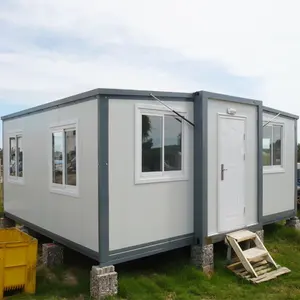Conex Homes for Sale: A Modern Solution to Affordable Housing
In an era marked by escalating housing costs, there is an increasingly urgent demand for sustainable and affordable housing options. Conex homes have arisen as a groundbreaking solution to address this challenge. These structures, based on shipping containers, provide an exceptional combination of affordability, sustainability, and versatility. This makes them an appealing choice for a broad spectrum of homebuyers. In this article, we will explore the concept of conex homes for sale and delve into a real-life case study to showcase their potential.
The Rise of Conex Homes
Conex homes, also known as container homes, are constructed by repurposing shipping containers. These large, steel structures were originally designed for the transportation of goods across the globe. However, as the world grapples with a housing crisis, these containers have found a new purpose as building blocks for affordable and eco-friendly homes.
One of the primary advantages of conex homes is their cost-effectiveness. Repurposing shipping containers reduces construction expenses significantly, making these homes more affordable than traditional housing. Furthermore, their modular nature allows for quicker construction, lowering labor costs and time. As a result, conex homes have garnered attention as an innovative solution for addressing the affordable housing shortage.

A Real-Life Case Study
To showcase the potential of conex homes, let’s delve into a real-life case study of a community project in Seattle, Washington. This project utilizes conex homes to address homelessness and offer affordable housing solutions.
The project, known as ‘Hope Haven,’ is a collaboration between a non-profit organization, local government agencies, and private investors. With the aim of converting a vacant lot in the heart of the city into a community of conex homes for individuals experiencing homelessness, we have designed the homes to be compact yet comfortable. They feature insulation, plumbing, and electricity to ensure a high standard of living. Moreover, each unit is constructed using repurposed shipping containers and equipped with essential amenities for residents.
What makes this project particularly impressive is its sustainability aspect. We design the conex homes to be energy-efficient by utilizing renewable energy sources and integrating eco-friendly building materials. The reduced energy consumption not only benefits the environment but also ensures lower utility bills for residents, making these homes even more affordable.
Additionally, the community aspect of Hope Haven is crucial. The project offers on-site support services for residents, including access to healthcare, job training, and counseling. This holistic approach aims to empower individuals and families to regain their independence and self-sufficiency, breaking the cycle of homelessness.
The success of Hope Haven serves as a compelling testament to the potential of conex homes in addressing affordable housing and homelessness issues. Furthermore, conex homes offer a sustainable and cost-effective housing solution for communities.
Conclusion
Conex homes for sale represent a promising solution to the affordable housing crisis. Their cost-effectiveness, sustainability, and adaptability render them a practical choice for various housing requirements. This is exemplified by the real-life case study of Hope Haven in Seattle. With the growing demand for affordable and eco-friendly housing, it is likely that conex homes will take on a more significant role in shaping the future of housing. These homes offer hope to those in need of suitable housing solutions.
